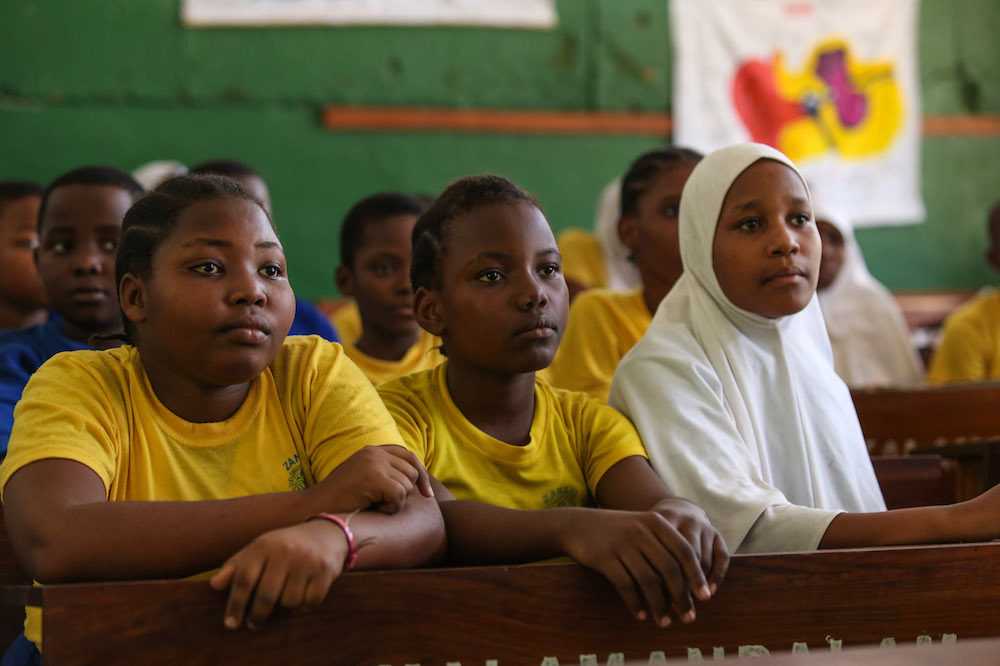Tanzania and World Bank have been close development partners for more than 54 years, and throughout the years—Tanzania has benefited from several funds that tap into the core of transforming the development landscape in one of the largest economies in East Africa.
According to World Bank, in the last 50 years, the cooperation between the Bank Group and the Government has grown in financing, grants, policy advice, and research; covering various areas from macroeconomic management to projects in transport, energy, education, health, and other key sectors for both Tanzania Mainland and Zanzibar’s development.
Recently the government of Tanzania has experienced a hard-time securing a $500 million education loan from World Bank, scheduled to revitalize the crucial sector in Tanzania.
The loan could be largest financial assistance provided to Tanzania within the past three years aimed at the education sector.
And yet—the loan has been delayed, in the wake of human rights and gender activists in Tanzania and abroad, who are raising their voices against what they term as, harsh actions taken by the government to ban pregnant girls from returning to school.
According to CNN, a source noted that, the bank’s executive board was meant to meet on Tuesday, January 28 to consider the loan, but the meeting was postponed after one member requested a delay on Monday. Hence—a source told CNN that, the request to delay came in after the bank held a last-minute emergency meeting with Tanzanian activists and international human rights organizations earlier on Monday, January 27.
READ:Tanzania Education gets a $ 90 million boost
Further, this is not, the first time Tanzania and World Bank mingled in such saga, Human Rights Watch noted that, in November 2018, the World Bank withheld a $300 million loan for secondary education in Tanzania in part because of the government’s mistreatment of pregnant girls. It was the only development partner to express these concerns publicly.
The Loan
The World Bank loan to Tanzania stands to provide funds for the Secondary Education Quality Improvement Program (SEQUIP), which aims to expand girls’ access to secondary schooling by building more classrooms, improving the quality of textbooks and teaching, tackling gender-based violence within schools and during the journey to school, and promoting a gender-sensitive school environment.
Despite its pledge, the government failed to lift its ban on pregnant students and adolescent mothers. SEQUIP will only allow them to study in so-called “alternative education pathways,” or parallel education centers. Unlike formal lower secondary schools, these will not be tuition-free.
Regardless of the loan piercing through the heart of the education sector drawbacks, still—the third sector finds the loan less-vital to the development landscape, due to the fact that they find it “discriminating” young pregnant girls.
Tanzanian non-governmental organizations have written to the World Bank’s Board of Executive Directors expressing their concerns with the creation of this alternative education system, and the World Bank’s endorsement of this program.
On the contrary, Bella Bird, the former World Bank Country Director for Tanzania, Burundi, Malawi, and Somalia, attended the meeting on Monday, briefing the activists on why her team thought the loan should go ahead. Bird is expected to step down on Friday, a source from World Bank told CNN.
On a different occasion, Hafez Ghanem, the World Bank’s vice president for Africa, was quoted then as saying: “Girls’ education is central to development, we are a development institution, we cannot accept that some girls be denied education. If we accept that, we won’t be doing development,”
READ:Tanzania and Germany partner to boost graduates’ marketability
However, the World Bank spokesman for Tanzania told CNN that, since 2018 the bank has worked with the Tanzanian government to find a solution. He said the purpose of the reworked loan program was to “enhance the quality and provision of education,”
“The program has been redesigned … to ensure girls and boys who drop out, including pregnant girls, have alternate education options for themselves,” he said.
Also, when asked why the bank didn’t require a guarantee that girls who get pregnant would be allowed to continue in-state school if they wish to, the spokesman repeated the current solution was a result of an agreement between the World Bank and Magufuli.
Development funding landscape in Tanzania
The letter written by a Tanzania opposition Member of Parliament (MP), Zitto Kabwe, has erupted rather conflicting reactions from various MP’s and even the Tanzanian Speaker of the national assembly.
In the letter the MP sent to the World Bank’s board of directors, and published by The Citizen he argued that: the government has not demonstrated any good intent on the use of the money on advancing the interests of girls and women in Tanzania. The MP was referring to the recent government’s ban on pregnant school girls from resuming studies after delivery.
Still—the East African, finds itself within good terms of securing grants and loans, due to the current pathway, it has been taking in enhancing its internal revenue collection and funding its development initiatives particularly, infrastructure projects.
On different occasions, the Tanzanian President John Magufuli commended the Tanzania Revenue Authority (TRA) efforts to raise revenue collection, which reached an all-time high in the last quarter of fiscal 2018/2019, at $ 1.7 billion, a 19.78 per cent growth.
Also, the government of Tanzania is getting serious with dividends and contributions in various companies and entities it has invested, urging boards of directors to take serious measures in enhancing their company’s operations.
In November 2019, President Magufuli received $ 455 million as dividends and contributions from 79 entities, noted that about 40 per cent of the collected revenue is allocated to development projects.
The latter could give Tanzania a strong-hand in the loan power play, especially in this year when it will hold its general elections, taken as a crucial metric of the East African governance by the international community.
Unless—it addresses the human rights and democratization issues highlighted by the local activists and the international community, Tanzania might face other setbacks in securing grants and loans from other sources, who take the latter seriously.
Earlier this month, the Swedish government changed its strategy for development partnership with the government of Tanzania in two angles—lasting for five years.
The first includes reducing a quarter of aid to Tanzania, from $ 83 million to $ 62 million per year, due to what they regarded as negative developments in human rights and democracy space, a Swedish news outlet revealed.
On the other angle, the Swedish government ushers a new strategy different from the reduced support, which comes with about $311 million funds for the five-year-period, 2020-2024.
This means that the strategy strengthens Sweden’s efforts in prioritized areas such as human rights, democracy and gender equality, and environment and climate.
More importantly, in relation to the current context—Sweden’s engagement in the area of education will continue. The strategy builds on the progress that has been made in recent years and aims to contribute to inclusive, quality education that focuses on girls and young mothers.
According to Tanzania Development Partners Group, Tanzania has been working hard to trim the external grants and concessional loans) relative to total government expenditure for the past decade, reducing donor financing from 44 per cent in 2004/2005 to 19 per cent in 2013/2014, and even lower in 2014/2015.
In January, Tanzania settled its three-year dispute with the world’s second gold miner, Barrick Gold and initiated a new chapter within the mining landscape in Tanzania, hence—this could be an indicator that, the country has the potential to settle the World Bank’s loan saga.
As the UK, the US, and EU, make up the largest aid contributors to Tanzania, it compels the nation to work on its internal affairs echoed by dissents and influential international activists, in securing its reputation as a vibrant development partner in the region, which is crucial in attaining funds necessary for development.
However, World Bank officials in Tanzania declined to comment further on the development of the loan.
READ:What the future holds for Tanzania’s economy in 2020











